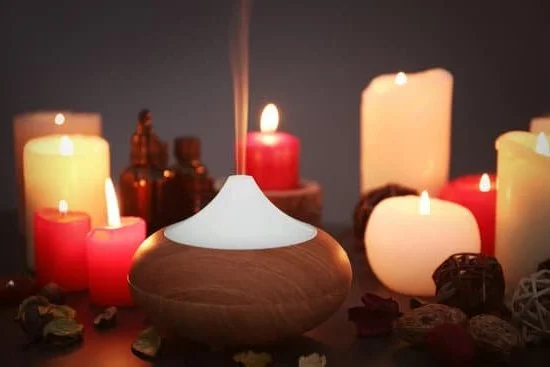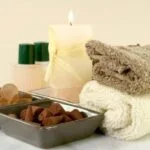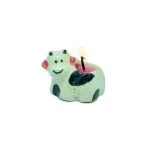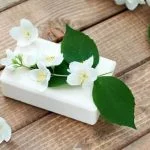Are you wondering, do aromatherapy diffusers work? Aromatherapy diffusers have become increasingly popular in recent years as people seek natural remedies for wellness and relaxation. In this article, we will explore the science behind aromatherapy and how diffusers are believed to work.
We will also discuss the potential benefits and uses of aromatherapy diffusers, as well as the different types available on the market. Additionally, we will provide real-life experiences and considerations when using aromatherapy diffusers to help you determine if they really work for you.
Aromatherapy has been practiced for centuries, utilizing essential oils derived from plants to promote physical and mental well-being. The use of aromatherapy diffusers allows for the inhalation of these essential oils, which are believed to have various therapeutic effects on the body and mind. By understanding the science behind aromatherapy, we can better grasp how diffusers are intended to work and their potential impact on our overall health.
In this comprehensive guide, we will delve into the mechanisms of how aromatherapy diffusers function and how they distribute essential oils into the air. Additionally, we will explore the different types of aromatherapy diffusers available, including ultrasonic, nebulizing, heat, and evaporative diffusers. By gaining a better understanding of these devices, you can make an informed decision on whether aromatherapy diffusers are effective for your personal wellness needs.
Understanding the Science Behind Aromatherapy
Aromatherapy has been used for centuries as a natural way to promote relaxation, improve mood, and alleviate various physical and mental ailments. The practice involves using essential oils extracted from plants to stimulate the senses and promote overall well-being. But how exactly does aromatherapy work, and do aromatherapy diffusers actually enhance its effects?
How Aromatherapy Works
The science behind aromatherapy lies in the powerful effect that scents have on the brain. When essential oils are inhaled, their molecules travel through the nasal cavity and interact with receptors in the olfactory system. This stimulates the limbic system – the part of the brain responsible for emotions, memories, and feelings of calmness or alertness.
The Role of Diffusers
Aromatherapy diffusers play a crucial role in dispersing essential oils into the air, allowing for easy inhalation. Whether through ultrasonic diffusion, heat, evaporation, or nebulization, diffusers break down essential oils into tiny particles that can be easily inhaled and absorbed by the body. This method ensures that the therapeutic properties of essential oils are effectively utilized, enhancing their potential benefits.
Effectiveness of Aromatherapy Diffusers
Research has shown that using aromatherapy diffusers can effectively disperse essential oils into the air and have an impact on mood, stress levels, and overall well-being. Many individuals have reported feeling calmer and more relaxed after using aromatherapy diffusers regularly. While more scientific studies are needed to fully understand the extent of their effectiveness, there is growing evidence to suggest that aromatherapy diffusers can indeed work as a valuable tool for promoting health and wellness.
How Aromatherapy Diffusers Work
Aromatherapy diffusers work by dispersing essential oils into the air, allowing their aromatic and therapeutic properties to be inhaled. The diffuser breaks down the essential oil into tiny molecules, creating a fine mist that is released into the air. This process is believed to promote relaxation, improve mood, and provide various health benefits.
One of the most common types of aromatherapy diffusers is the ultrasonic diffuser. This type of diffuser uses water and electronic frequencies to create ultrasonic vibrations, which then disperses the essential oils as a fine mist into the air. Another type is the nebulizing diffuser, which does not require water and works by using pressurized air to disperse the essential oil.
Research has shown that aromatherapy can have positive effects on both the mind and body. For example, certain essential oils like lavender have been found to have calming effects and reduce anxiety levels. Peppermint essential oil has been known to alleviate headaches and improve focus. Furthermore, some studies have suggested that inhaling certain essential oils may help boost the immune system and improve sleep quality.
It’s important to note that while many individuals find aromatherapy diffusers beneficial for their overall well-being, it may not work for everyone in the same way. The effectiveness of aromatherapy diffusers can depend on factors such as individual preferences, sensitivities or allergies, and the quality of the essential oils being used.
| Effectiveness of Aromatherapy | Benefits |
|---|---|
| Calming effects on the mind | Reduced anxiety levels |
| Alleviates headaches | Improves focus |
| Boosts immune system | Improves sleep quality |
Benefits and Uses of Aromatherapy Diffusers
Aromatherapy diffusers are highly valued for their many benefits and uses. These devices are known to promote relaxation, improve mood, and provide relief from stress and anxiety. Additionally, they can also help with eliminating odors and purifying the air in your home. Here are some key benefits and uses of aromatherapy diffusers:
- Stress Relief: Aromatherapy diffusers can help create a calming atmosphere in your home, which can aid in reducing stress and anxiety levels.
- Mood Enhancement: Certain essential oils used in aromatherapy diffusers are known for their mood-boosting properties. They can help uplift your spirits and create a positive environment.
- Improved Sleep Quality: Some essential oils, such as lavender, are renowned for their ability to promote relaxation and improve sleep quality. Using an aromatherapy diffuser with these oils before bed can contribute to a better night’s rest.
In addition to the psychological benefits, aromatherapy diffusers also have physical advantages. They can help with respiratory issues by clearing out the sinuses and reducing inflammation. Some essential oils also possess antibacterial properties that can aid in purifying the air.
When using aromatherapy diffusers, it’s important to consider the specific needs of each individual or household. For example, those with allergies or respiratory conditions should carefully choose the essential oils they use in their diffuser. It’s always best to consult with a healthcare professional before incorporating aromatherapy into your wellness routine.
Overall, based on the numerous reported benefits and positive experiences from users, it is clear that aromatherapy diffusers do work effectively in enhancing both physical and mental well-being when used correctly and safely.
Types of Aromatherapy Diffusers
Aromatherapy diffusers are a popular way to enjoy the benefits of essential oils in your home or workspace. There are several types of diffusers available, each with their own unique advantages and drawbacks. Here is a closer look at the different types of aromatherapy diffusers:
- Unscented Candle Diffusers: These diffusers use a small tea light candle to gently heat the essential oil and release its aroma into the air. They are simple to use and can add a cozy ambiance to any space.
- Ultrasonic Diffusers: This type of diffuser uses ultrasonic vibrations to disperse a fine mist of water and essential oils into the air. It is great for adding humidity to the air as well as dispersing the scent of the essential oils.
- Nebulizing Diffusers: Nebulizing diffusers work by using pressurized air to disperse pure essential oil particles into the air. They do not require water or heat, making them ideal for those who want to experience the full benefits of the essential oils without any dilution.
- Evaporative Diffusers: These diffusers typically use a fan to blow air through a pad or filter that has been soaked in essential oils. The air then carries the aroma throughout the room. They are affordable and easy to use, but they may not be as effective at dispersing heavier oils.
Each type of aromatherapy diffuser has its own set of pros and cons, so it’s important to consider your specific needs and preferences when choosing one for your home or workspace.
When considering which type of diffuser is right for you, think about factors such as ease of use, maintenance requirements, how long you want the scent to last, and your budget. Additionally, consider if you have any specific health concerns that may impact which type of diffuser is best for you.
Factors to Consider When Using Aromatherapy Diffusers
When using aromatherapy diffusers, there are several factors to consider in order to make the most out of their benefits. One important factor to take into account is the type of essential oil being used.
Different essential oils have different properties and effects, so it’s crucial to choose the right one for your needs. For example, lavender essential oil is commonly used for relaxation and promoting better sleep, while peppermint essential oil is known for its energizing and invigorating effects.
Another important consideration when using aromatherapy diffusers is the size of the room where you will be using it. Some diffusers are designed for larger spaces, while others are better suited for smaller rooms. It’s important to choose a diffuser that can effectively disperse the essential oils throughout the entire room in order to experience their full benefits.
Additionally, it’s essential to properly clean and maintain your aromatherapy diffuser in order for it to work effectively. Neglecting regular cleaning can lead to mold and bacteria buildup, which can negatively impact both the performance of the diffuser and your health. Following the manufacturer’s instructions for cleaning and maintenance is crucial for ensuring that your aromatherapy diffuser works properly and safely.
In summary, there are several factors to consider when using aromatherapy diffusers in order to maximize their effectiveness. Choosing the right essential oils, considering the size of the room, and properly maintaining the diffuser are all essential aspects of using aromatherapy diffusers successfully.
| Factors | Considerations |
|---|---|
| Type of Essential Oil | Choose based on properties and effects |
| Room Size | Select an appropriate diffuser for space |
| Cleaning and Maintenance | Follow instructions for proper care |
Real-Life Experiences With Aromatherapy Diffusers
In recent years, the use of aromatherapy diffusers has become increasingly popular as more people seek natural and holistic remedies for their well-being. Many individuals have reported positive experiences with aromatherapy diffusers, claiming that these devices have helped them relax, improve their mood, and even alleviate certain symptoms. This section will explore some real-life experiences with aromatherapy diffusers, shedding light on the practical benefits of these devices.
Improvement in Mood and Stress Reduction
Numerous individuals have shared their positive experiences with using aromatherapy diffusers to create a calming atmosphere in their homes or workplaces. Many users have reported feeling a sense of relaxation and a reduction in stress levels after using essential oils such as lavender or chamomile in their diffusers. Some have even claimed that regular use of aromatherapy diffusers has helped them improve their overall mood and mental well-being.
Alleviation of Physical Symptoms
Several people have also attested to the potential physical benefits of using aromatherapy diffusers. For example, some individuals claim that diffusing eucalyptus oil has helped relieve congestion and ease breathing difficulties, especially during cold and flu season. Others have reported that using peppermint or ginger essential oils in their diffusers has helped alleviate headaches or nausea.
Enhancement of Sleep Quality
Many users have shared how incorporating aromatherapy diffusers into their bedtime routine has positively impacted their sleep quality. By using relaxing essential oils such as lavender or chamomile before bedtime, some individuals claim to experience deeper and more restful sleep. This improvement in sleep quality has led many users to advocate for the effectiveness of aromatherapy diffusers in promoting better overall sleep health.
Overall, these real-life experiences highlight the potential benefits of using aromatherapy diffusers for both mental and physical well-being. While individual results may vary, the positive testimonials from users provide compelling evidence that supports the efficacy of aromatherapy diffusers in enhancing overall wellness.
Final Verdict
In conclusion, the question “do aromatherapy diffusers work?” can be answered with a resounding yes. Aromatherapy diffusers have been used for centuries as a natural way to improve physical, emotional, and mental well-being. Understanding the science behind aromatherapy and how diffusers work helps to explain why these devices are effective in providing various benefits.
The real-life experiences shared by many individuals also attest to the effectiveness of aromatherapy diffusers. Users have reported feeling more relaxed, less anxious, and having improved sleep patterns after using these devices. The versatility of different types of diffusers also allows individuals to choose the best option for their needs and preferences.
When using aromatherapy diffusers, it is important to consider factors such as the quality of essential oils used, the size of the room, and potential allergies or sensitivities. By taking these factors into account and using aromatherapy diffusers properly, individuals can maximize the benefits they receive from these devices.
Overall, based on the science behind aromatherapy, real-life experiences, and careful consideration of usage factors, it is clear that aromatherapy diffusers do indeed work in providing a range of benefits for users.
Frequently Asked Questions
Do Aroma Diffusers Actually Work?
Aroma diffusers have been shown to work in dispersing essential oils into the air, allowing for inhalation or topical use. The effectiveness of a diffuser largely depends on the quality of the essential oil and the type of diffuser used.
Are Aromatherapy Diffusers Good for You?
Aromatherapy diffusers can be good for one’s well-being as they are believed to promote relaxation, improve mood, and reduce stress. However, individual responses to aromatherapy vary, so it may not work for everyone.
Do Doctors Recommend Diffusers?
While some doctors may recommend diffusers as part of a holistic approach to address certain health issues such as stress, anxiety, or sleep disturbances, it’s important to consult with a healthcare professional before using them, especially if you have any underlying health conditions.

Are you looking for a natural way to improve your health and wellbeing?
If so, aromatherapy may be the answer for you.





